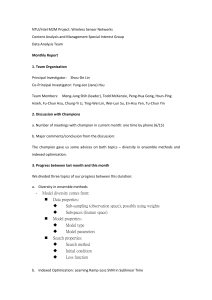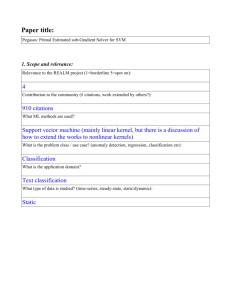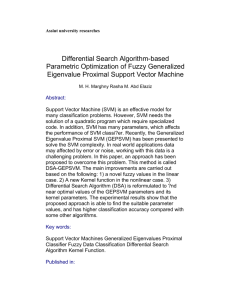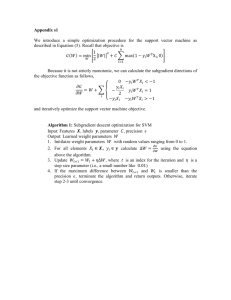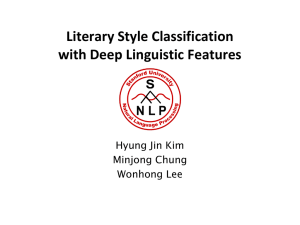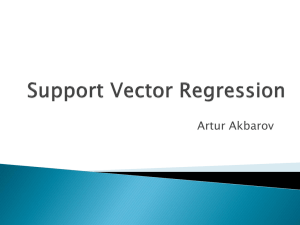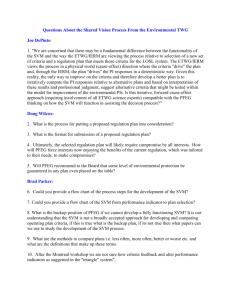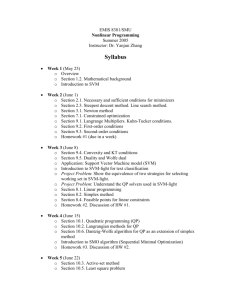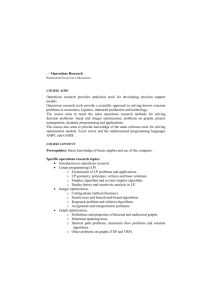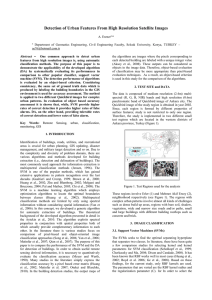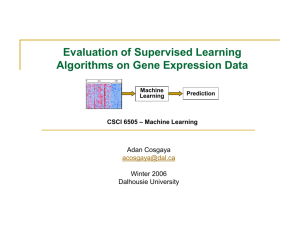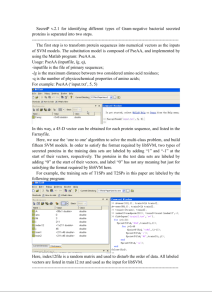When I was a child, I was fascinated by the detectives in novels and
advertisement
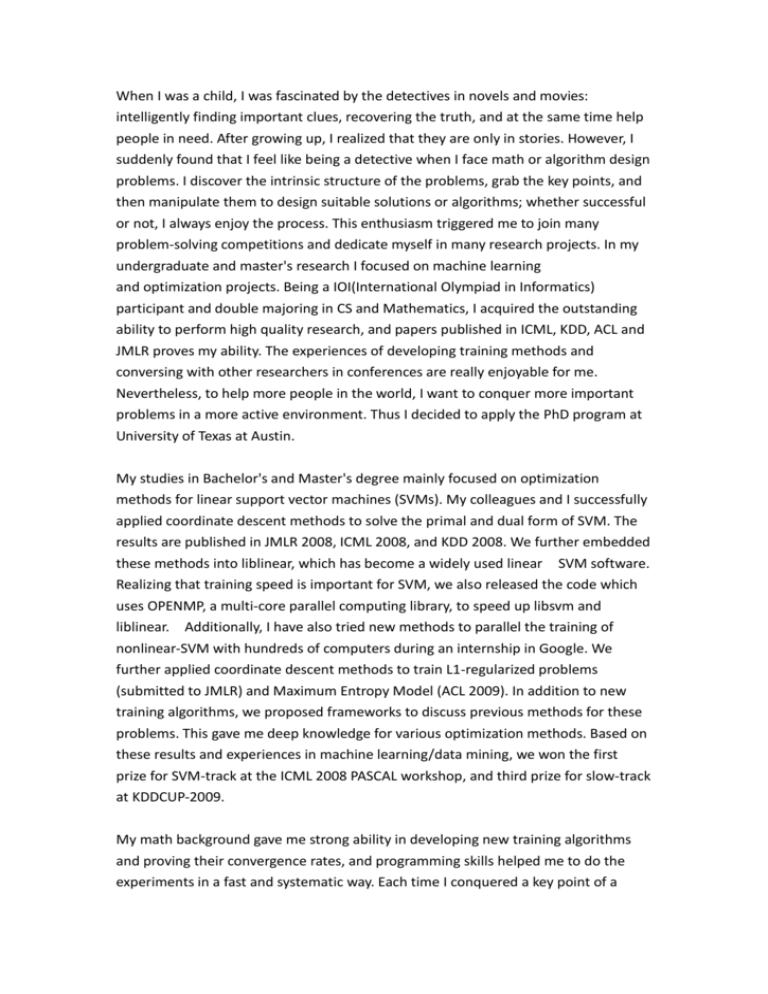
When I was a child, I was fascinated by the detectives in novels and movies: intelligently finding important clues, recovering the truth, and at the same time help people in need. After growing up, I realized that they are only in stories. However, I suddenly found that I feel like being a detective when I face math or algorithm design problems. I discover the intrinsic structure of the problems, grab the key points, and then manipulate them to design suitable solutions or algorithms; whether successful or not, I always enjoy the process. This enthusiasm triggered me to join many problem-solving competitions and dedicate myself in many research projects. In my undergraduate and master's research I focused on machine learning and optimization projects. Being a IOI(International Olympiad in Informatics) participant and double majoring in CS and Mathematics, I acquired the outstanding ability to perform high quality research, and papers published in ICML, KDD, ACL and JMLR proves my ability. The experiences of developing training methods and conversing with other researchers in conferences are really enjoyable for me. Nevertheless, to help more people in the world, I want to conquer more important problems in a more active environment. Thus I decided to apply the PhD program at University of Texas at Austin. My studies in Bachelor's and Master's degree mainly focused on optimization methods for linear support vector machines (SVMs). My colleagues and I successfully applied coordinate descent methods to solve the primal and dual form of SVM. The results are published in JMLR 2008, ICML 2008, and KDD 2008. We further embedded these methods into liblinear, which has become a widely used linear SVM software. Realizing that training speed is important for SVM, we also released the code which uses OPENMP, a multi-core parallel computing library, to speed up libsvm and liblinear. Additionally, I have also tried new methods to parallel the training of nonlinear-SVM with hundreds of computers during an internship in Google. We further applied coordinate descent methods to train L1-regularized problems (submitted to JMLR) and Maximum Entropy Model (ACL 2009). In addition to new training algorithms, we proposed frameworks to discuss previous methods for these problems. This gave me deep knowledge for various optimization methods. Based on these results and experiences in machine learning/data mining, we won the first prize for SVM-track at the ICML 2008 PASCAL workshop, and third prize for slow-track at KDDCUP-2009. My math background gave me strong ability in developing new training algorithms and proving their convergence rates, and programming skills helped me to do the experiments in a fast and systematic way. Each time I conquered a key point of a proof or developed a trick to reduce the training time, I was so excited that I could not stopped myself from doing more research. With these abilities, I also have many inspirations for other problems. For example, after a meeting introducing ``learning to rank'' problem, I wrote formulas for the task and suddenly found it could be approximately reduced to the classical SVM formula. Implementation was done in one day, and the performance was competitive with state-of-the-art methods. After that I further extended it to reduce multi-label problems to binary classifications. At KDD, I discussed these reductions with other students, and they told me about some related papers. I am really happy to discuss with people from different regions, and this has become one of my motivation to study abroad. Besides my abilities with optimization methods, I also have plenty of knowledge at the application level. Experiences of maintaining LIBLINEAR and LIBSVM taught me how SVM is used in applications, and how to find research topics from users' requirements. In college, my friend and I built a web photo ranking system called ``Hotter or Notter''(http://hotter.csie.org). With more than 3 million pair-comparing votes, we use the Bradley-Terry model to generate a global ranking. From this experience I learned how to manage a large web site. I also have a great deal of experiences in NLP software. We embedded our training method for maximum entropy model into opennlp, a well-known NLP package. Besides, during our internship at Google, we noticed that ``dependency parsing'' is another important NLP task. MaltParser, one of the most famous parsing software, uses SVM as the core classification method. Based on the experience using SVM, we transformed the polynomial kernel to a linear kernel with spanned features. With LIBLINEAR, the transformation significantly improved the training/testing speed. The curiosity to facing new problems forms my diverse ability in many different areas, which may be useful in future investigations. Before college I already read some advanced physic books and got top 24 in the process of selecting Taiwan's participant to International Olympiad in Physics. In college I also choose courses in various topics, including robotics, bioinformatics, graphics, and financial algorithms. It's always not easy at first when I put myself into another area, but after becoming familiar with it, I usually can further apply my machine learning knowledge into these areas. For example, in a bioinformatics course, I built a classifier to predict protein-phosphorylation (one of protein-protein interactions) which achieved 92% accuracy by gene ontology and microarray data. In one robotics course, I applied object detection methods based on machine learning to detect bricks in photos and automatically construct the map by robot. This earned me the second prize of the final competition in the class. Moreover, during the research assistantship in Academia Sinica for biology, I use my knowledge in computer science to analysis biology data in an efficient way. And working as a research assistant in Mathematics department in Academia Sinica, I not only theoretically studied the behavior of chaos systems but also wrote programs to simulate them. These experiences show my potential in using my knowledge in machine learning to conduct interdisciplinary researches. In the future, I want to focus on large-scale statistics learning methods and its applications. I believe with suitable models and efficient optimization algorithms, we can exploit the information in large data to improve people's lives. For this purpose, I am interested in the machine learning and data mining groups in University of Texas at Austin. Moreover, I am also interested in applying machine learning methods to natural language processing and bio-informatic research in University of Texas at Austin. With my enthusiasm for thinking and rich experiences, I believe I can make contributions in the future.
